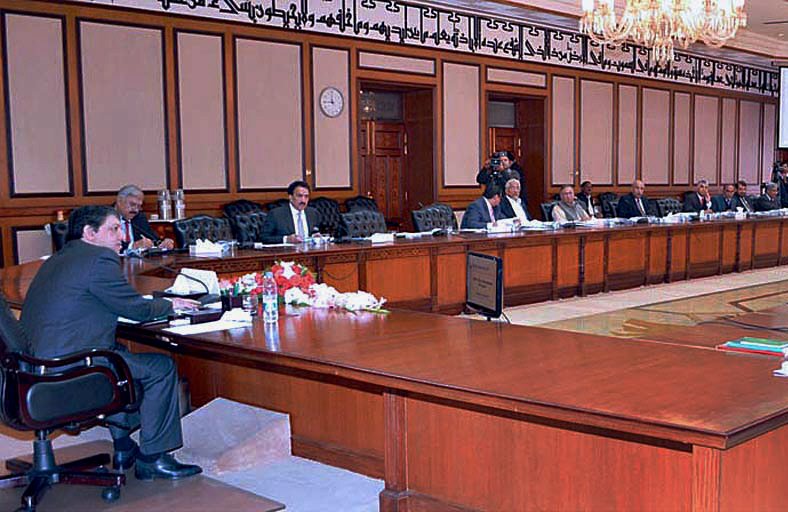
The federal government is once again attempting to revive the controversial Safe City Islamabad project and has referred the matter to the Supreme Court, which had earlier scrapped the plan, for endorsement.
The project was on the agenda of the Economic Coordination Committee (ECC) of the Cabinet, headed by newly appointed Finance Minister Saleem Mandviwala, in a meeting here on Tuesday. Instead of rejecting the summary, the ECC referred the project to the apex court.
In his first interaction with the media after taking charge, Mandviwala candidly said following the meeting, “I cannot know everything and I am just chairing the ECC meeting.” Though decisions were taken by him, the responsibility rests with the ministries that moved the summaries to the ECC, he said.

According to an official, the Board of Public Procurement Regulatory Authority (PPRA) rejected the Safe City proposal when it was tabled for seeking exemptions from PPRA rules, in a meeting on Monday. He said the government now wanted to sign a government-to-government deal with China by seeking exemptions from PPRA rules, but it was denied.
A three-member bench of the apex court had declared the project illegal and directed the National Accountability Bureau to initiate legal action against former Prime Minister Yousaf Raza Gilani and other top officials for irregularities.
The judgment, authored by Justice Sheikh Azmat Saeed, stated the entire transaction was carried out in a non-transparent manner and at an inflated cost. According to a Planning Commission report, net value of the project was $72 million, but the contract was awarded for $124.7 million. The official pointed out that the cost of the project had not been revised in the fresh proposal as well.

The apex court had asked the government to reinitiate the procurement process in accordance with PPRA rules.
Separately, the ECC, which had approved five summaries in its previous meeting, again approved four summaries of the petroleum ministry. It increased margins of oil marketing companies and dealers without even conducting relevant studies, which will increase end-consumer prices.
Mandviwala said it was not necessary for him to know the implications of decisions as the ministry was in a better position to judge the impact on consumers.
The ECC also approved recovery of Parco claims from the freight pool (inland freight equalisation margin), which will also burden the consumers. The decision was taken despite opposition from the Oil and Gas Regulatory Authority.
In yet another summary, the ECC changed the formula for setting ex-refinery prices of high speed diesel. In the fourth summary, it allowed allocation of 100 million cubic feet of gas per day from new sources to the power plant of Nooriabad Industrial Estate.
Published in The Express Tribune, February 27th, 2013.
Like Business on Facebook to stay informed and join in the conversation.

















COMMENTS
Comments are moderated and generally will be posted if they are on-topic and not abusive.
For more information, please see our Comments FAQ